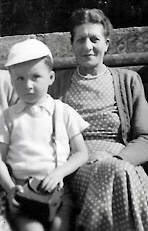Des Lewis will be 77 years old on 18 January 2025
Those who have read these episodic brainstorming reviews of mine must know they are very personal — rough-shod and spontaneous. Synchronicity and anagram mixed. I know they are not professional, never potentially publishable other than in the madness of my head, but I do hope they show grains of dark truth and cosmic panache.

These Des Lewis Gestalt Real-Time Reviews were founded in 2008.

‘What’s the loveliest word in the English language, officer? In the sound it makes in your mouth, in the shape it makes on the page? What do you think? Well now, I’ll tell you: E-L-B-O-W. Elbow.’ — THE SINGING DETECTIVE

“How shall a man find his way unless he lose it?” — Walter de la Mare

To any current genre author I have reviewed before — if you have a new story recently published or soon to be published in a collection or anthology, you may have a review by me of the story that also showcases where it is published. See HERE. (This is because I am no longer well enough to review as many books as I once did.)
Fresh Fictions, free to read HERE.
No AI input in preparation of my texts whatsoever.
THE NEW NONSCENIC
Photos here: https://conezero.wordpress.com/2024/02/24/d-f-lewis-recent-photos-1/

AMONG THE LIVING
First two sections.
“Instead of returning to his seat he continued on to the front, eyeing the back of the driver’s head as he swayed. Once or twice he accidentally grabbed someone’s shoulder or arm to steady himself. He’d apologize profusely, but even when a couple of people told him he wasn’t supposed to be up on the moving bus he steadfastly made his way toward his destination.”
This is a delight for someone like me who is a fan of Tem. A bit like Deadfall Hotel, so far, in tone, starting with Eric half waking half dreaming or half dozing half doing something other than sleeping in his bed, his wife beside him. Outright funny and obliquely absurd and strangely disquieting. Was that the unusual ringing of the phone awoke him? Twinges of agoraphobia, when called distantly by his brother to see his Mum dying in their hometown, a place he left for good many years before, and he reluctantly goes on the long-haul bus without his wife, with that sense of anxiety I get in journeys, whether the bus is going in the right direction? Or as far as his hometown? Only for him, it appears, says the justifiably grumpy driver, otherwise they would have turned back at the town before. This is fine vintage stuff. A blurred, fractious, disarmingly clumsy premature ageing about Eric?
Next two sections
“Instead, he wrapped himself up like the others, one more traveling mummy on the bus, and closed his eyes.”
Well, we have the continued delight (for us, at least) of Eric’s idiosyncratic bus journey, each passenger with a supplied over-blanket, one passenger with a layer of newspaper, too, whom Eric just about recognises as being the older version of Nancy whom he once hoped would be his first girl friend back in the youthful day. Don’t let me tell you more of the now remembered encounter between Nancy and his Mum. You need to read it from scratch yourself to gain the full grotesquely hilarious benefit of it as a reading experience! But one thing I will mention is that I later noticed that “August was too warm” for the outfit Nancy then chose to wear. No change there, then!
Next section
“Some of the vines had actually made inroads into the pavement, which meant real trouble after a few cycles of freeze and thaw.”
Eric is dropped by the bus at the ‘door’ of the farm, and you won’t believe the dereliction’s description of itself, surely beyond even dark deliberation by any author, I would guess. Including vestigial human appendages, fake or real, that I cannot even hint at from what I just read. Though I just did! And his brother’s welcoming words include some fake news…?
As an aside, I often notice inadvertent or preternatural connections with other books I am gestalt real-time reviewing simultaneously. Compare the above quote with the story’s ambiance read yesterday HERE and this novella’s whole scenario with the inverse nature of expectations when arriving at a building and difficult rites of passage (including similar vines in the quote above!) in a different novella today being experienced HERE.
Next two sections
These sections as I seem to have opportunely called them making the whole. Like some people being the whole of the place where they live or lived as its genius loci, being the constituent traits of body and mind that make or made them, the person we know or knew, those sections of self that we cohere to make the person we love – or hate… or fear … or wish to forget … or remember when we have forgotten them … or put out of sight even when they stand in front of us.
As I do with my gestalt real-time reviewing, cultivating, like Voltaire, a book’s fine garden. Or making it more overgrown and cluttered, an ideal retreat? Among the living.
“…he heard himself yelling, the sound issuing from everywhere.”
Next two sections
“This is sink hole country.”
Where deadly snakes are called salesmen, an overgrown garden the depth of a family’s past not as ‘white trash’ but as a residual mulch of living itself, still living? Even moving, beyond just being static household waste? Enough space to lose a cell phone, whose number Eric once ‘taught’ not told Marie back home, beyond the start of the bus journey. (Sorry, Marie wasn’t his ‘wife’ back home, as I said at the start of this review, but live-in girl friend.)
Now to the sharp-edged spades of digging further into this story’s own sink-hole about a sink-hole. Must be careful not to slice off my own foot in the process! Sectioned, as reviewer.
Last foresections
“Some things, once begun, had to be played out until an ending was achieved, of whatever sort.”
An ending is achieved. But at what cost? So utterly poignant, so uplifting in a strange inchoate convulsion of realisation. For any fans of Tem reading my sectioned review, I’d say this novella is essential reading. Surprised I had never heard of it before.
The last few scenes, the digging in the garden, the gestalt of Mother, the relationship between the two brothers, the art installations discovered, so utterly convulsive again, the routines of existence compared between the two of them, their existential doubts, the new triangulation of the coordinates of the Nancy memory (the woman recognised on the bus journey out), then the bus journey back, the telling observations of the scenes inside and outside the bus. We are that bus? The return to the city but to whom?
“A number of things came out all at once, connected.”
End